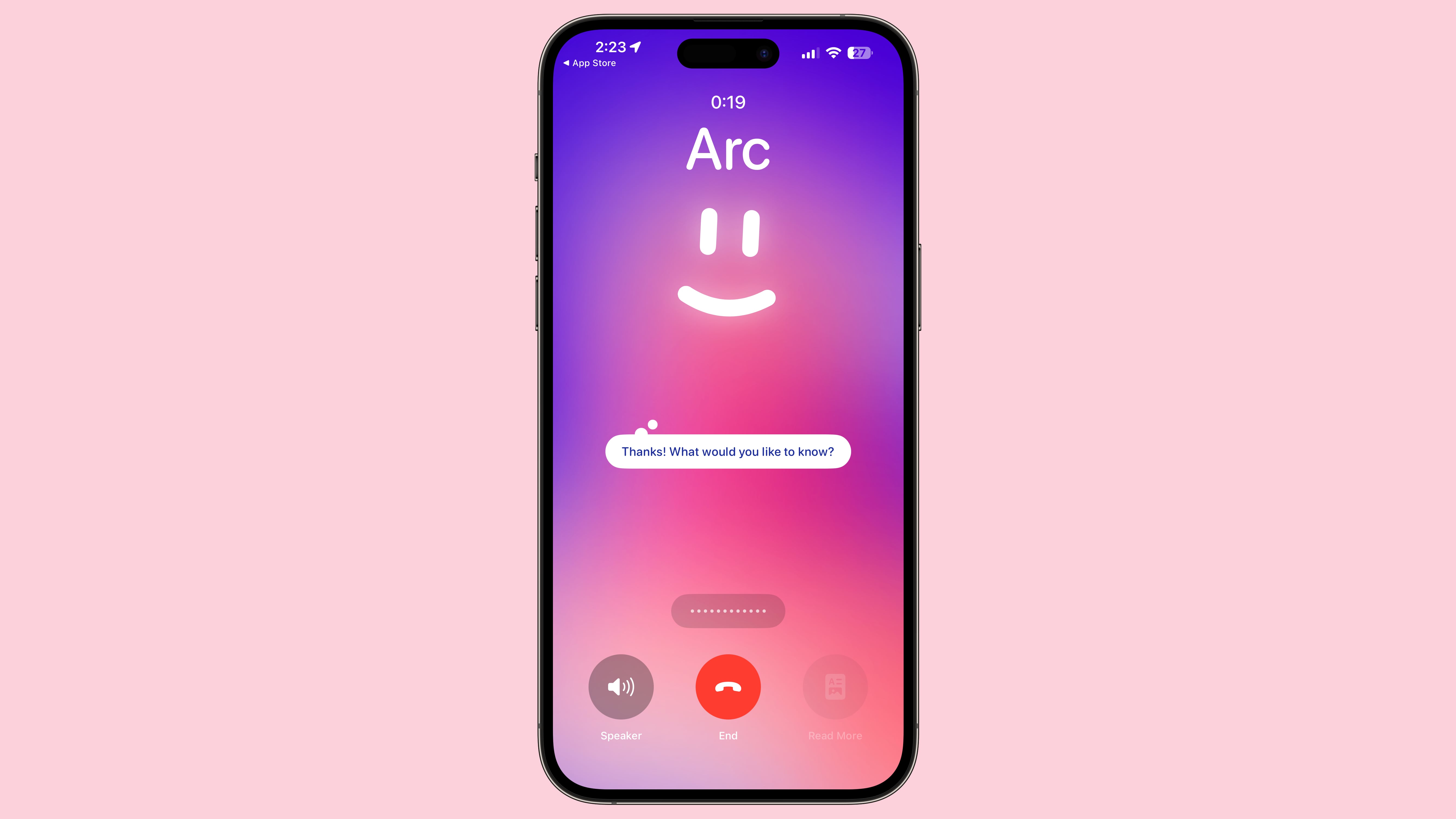Arc Search from The Browser Company was today updated with a new "Call Arc" feature that's designed to let you conduct a search in a gesture that mimics a phone call. To use the feature, open up Arc Search, raise the iPhone to your ear, and ask a question.
The gesture of raising the iPhone to your ear activates the search option, and answers are provided verbally, so the entire voice-based search experience makes it look as if you're simply talking on the phone.
Arc Search first launched in January as search app that incorporates AI to present search results in a curated, easy-to-read format. It has a minimalist browser interface where users can conduct a standard search or use the "browse for me" option to get an AI-summarized list of results to a query, similar to what you might get from a Chatbot.

Browse for Me is powered by large language models (LLMs) from OpenAI and others, and there's also a "pinch to summarize" feature that works with any webpage and an option to enable a reader mode to get rid of cruft on websites.
Arc Search is available for free on the App Store and requires iOS 16 or later. [Direct Link]
This article, "Search the Web With a Phone Call Using This New Arc Search Feature" first appeared on MacRumors.com
Discuss this article in our forums
Source: TechRadar
The gesture of raising the iPhone to your ear activates the search option, and answers are provided verbally, so the entire voice-based search experience makes it look as if you're simply talking on the phone.
Arc Search now has voice-activated search, triggered by holding your phone to your ear and saying your query -- just like you're making a phone call. Upon using Call Arc, you'll instantly hear your search results, accompanied by an animated smiley face! You can also click "Read More" to access full Browse for Me results for each query.After asking a question, Arc Search will play hold music briefly before providing a verbal answer and standing by for another question. The interface of the voice search resembles a phone call interface with a smiley face, an end call option, and a "speaker" option to have results spoken aloud.
Arc Search first launched in January as search app that incorporates AI to present search results in a curated, easy-to-read format. It has a minimalist browser interface where users can conduct a standard search or use the "browse for me" option to get an AI-summarized list of results to a query, similar to what you might get from a Chatbot.

Browse for Me is powered by large language models (LLMs) from OpenAI and others, and there's also a "pinch to summarize" feature that works with any webpage and an option to enable a reader mode to get rid of cruft on websites.
Arc Search is available for free on the App Store and requires iOS 16 or later. [Direct Link]
This article, "Search the Web With a Phone Call Using This New Arc Search Feature" first appeared on MacRumors.com
Discuss this article in our forums
Source: TechRadar